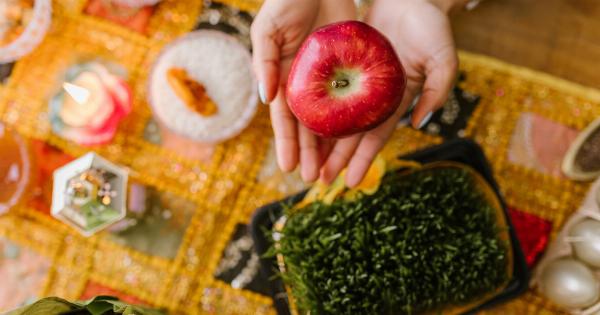Spring can be a beautiful time of year, with flowers blooming and greenery returning to the outdoors. But for allergy sufferers, it can also be a time of sneezing, coughing, and itchy eyes.
While there are medications and other treatments available to alleviate symptoms, some people prefer to try natural remedies, including changing their diet. Here are 10 foods that can help combat spring allergies:.
1. Honey
Honey has been a popular natural allergy remedy for centuries, and for good reason—it contains trace amounts of pollen, which can help the body build up a tolerance to seasonal allergens.
In fact, some studies have found that consuming local honey can help reduce allergy symptoms.
2. Blueberries
Blueberries are not only delicious but also contain high levels of antioxidants, which can help reduce inflammation in the body. This is particularly helpful for allergy sufferers, as inflammation is a major contributor to allergy symptoms.
3. Red Grapes
Like blueberries, red grapes are rich in antioxidants. They also contain quercetin, a natural antihistamine that can help alleviate allergy symptoms such as sneezing and itching.
4. Ginger
Ginger is a popular home remedy for a variety of ailments, including allergies. It contains compounds called gingerols and shgaols, which have anti-inflammatory properties that can help reduce allergic reactions.
5. Turmeric
Turmeric is another spice known for its anti-inflammatory properties. It contains a compound called curcumin, which can help alleviate allergy symptoms such as congestion and runny nose.
6. Salmon
Salmon is a great source of omega-3 fatty acids, which have been shown to reduce inflammation in the body. This can be helpful for allergy sufferers, as inflammation is a major contributor to allergy symptoms.
7. Broccoli
Broccoli is a cruciferous vegetable that is high in vitamin C. Vitamin C is a natural antihistamine that can help reduce allergy symptoms such as sneezing and itching.
8. Kale
Like broccoli, kale is a cruciferous vegetable that is high in vitamin C. It also contains carotenoids, which have been shown to help reduce allergy symptoms.
9. Apples
Apples are a great source of quercetin, a natural antihistamine that can help reduce allergy symptoms such as sneezing and itching. They are also high in fiber, which can help support gut health.
10. Peppermint
Peppermint is a natural decongestant, which can help alleviate allergy symptoms such as nasal congestion and coughing.
It also has a relaxing effect on the body, which can be helpful for allergy sufferers who experience anxiety or stress related to their symptoms.






























